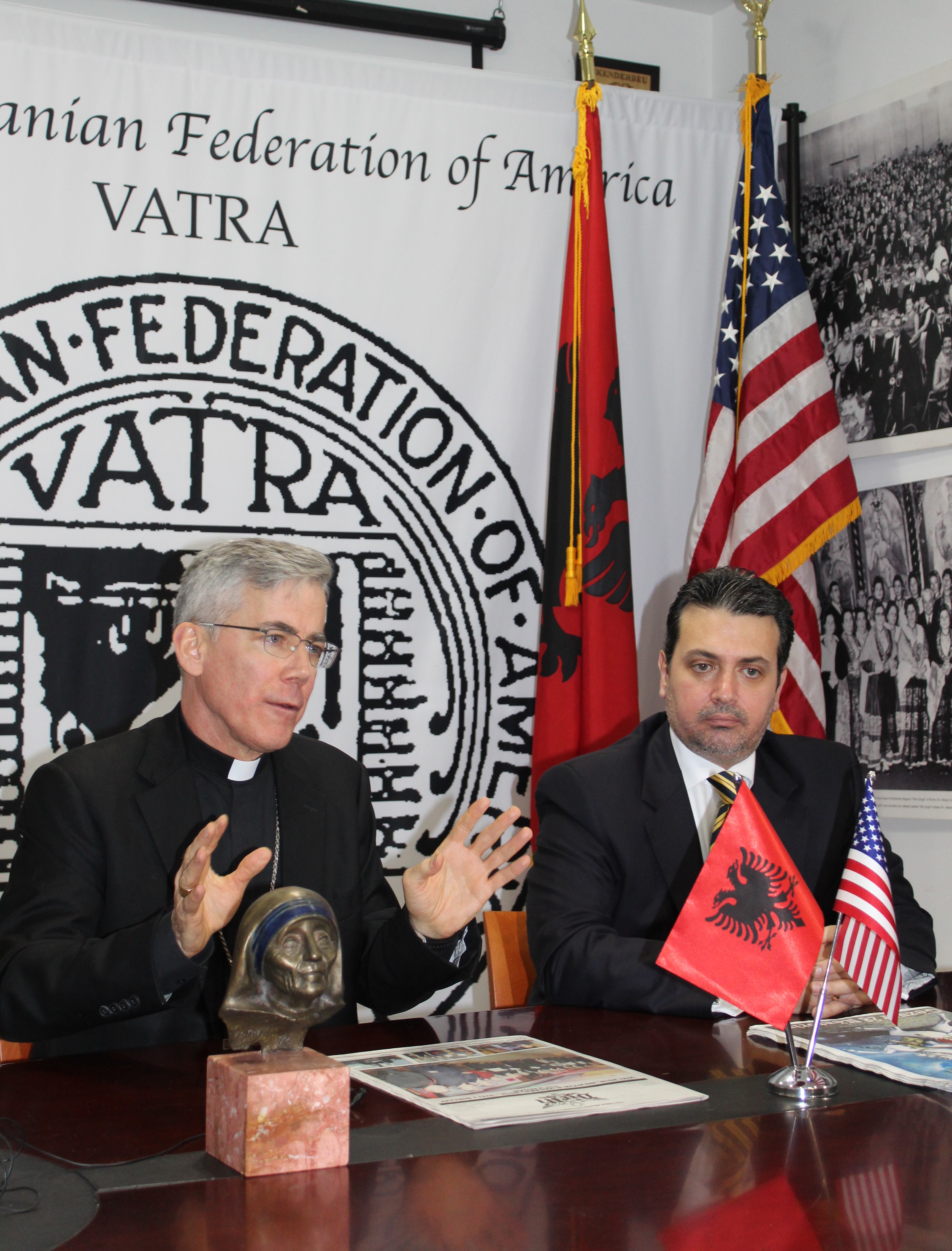
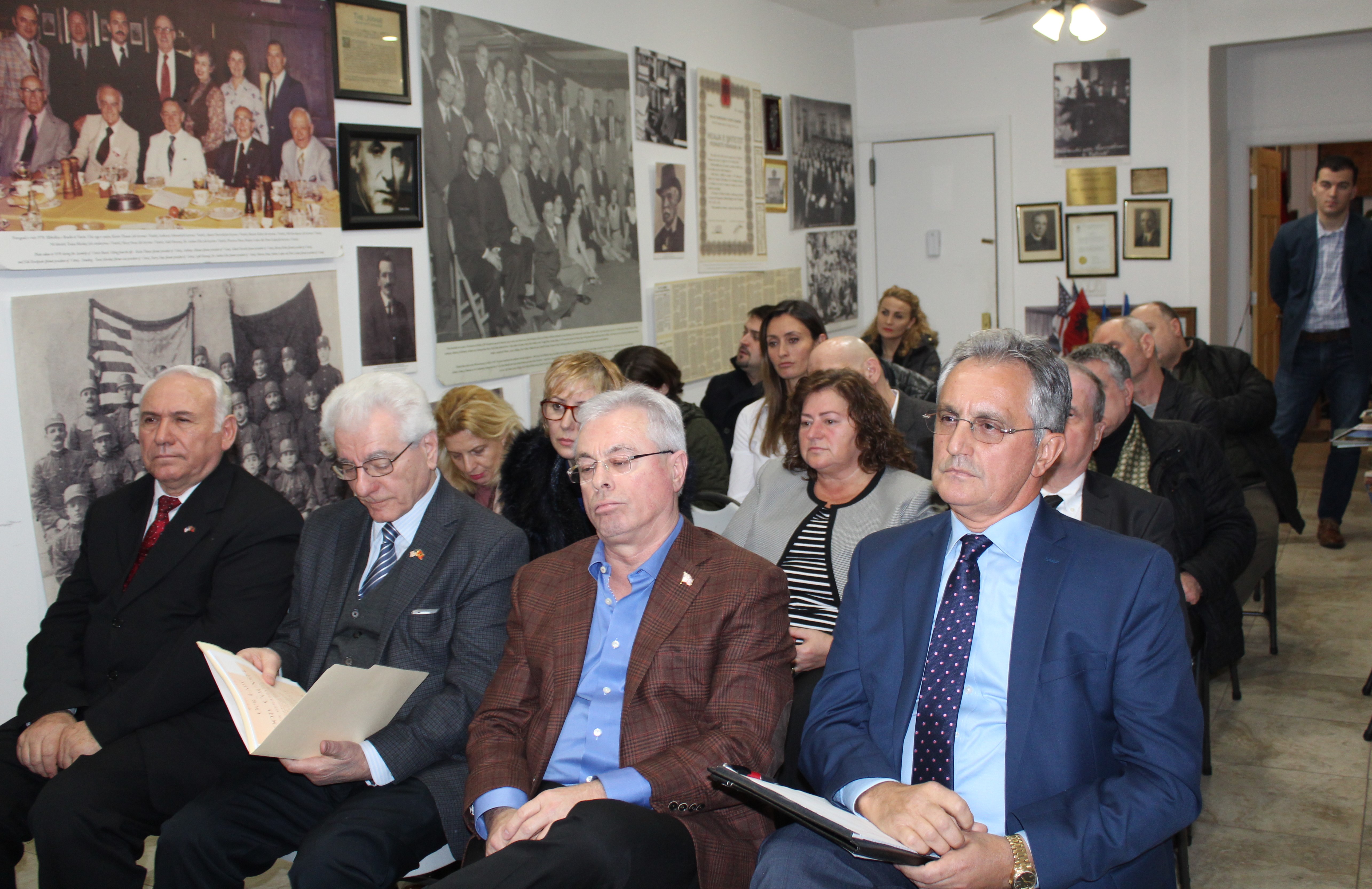
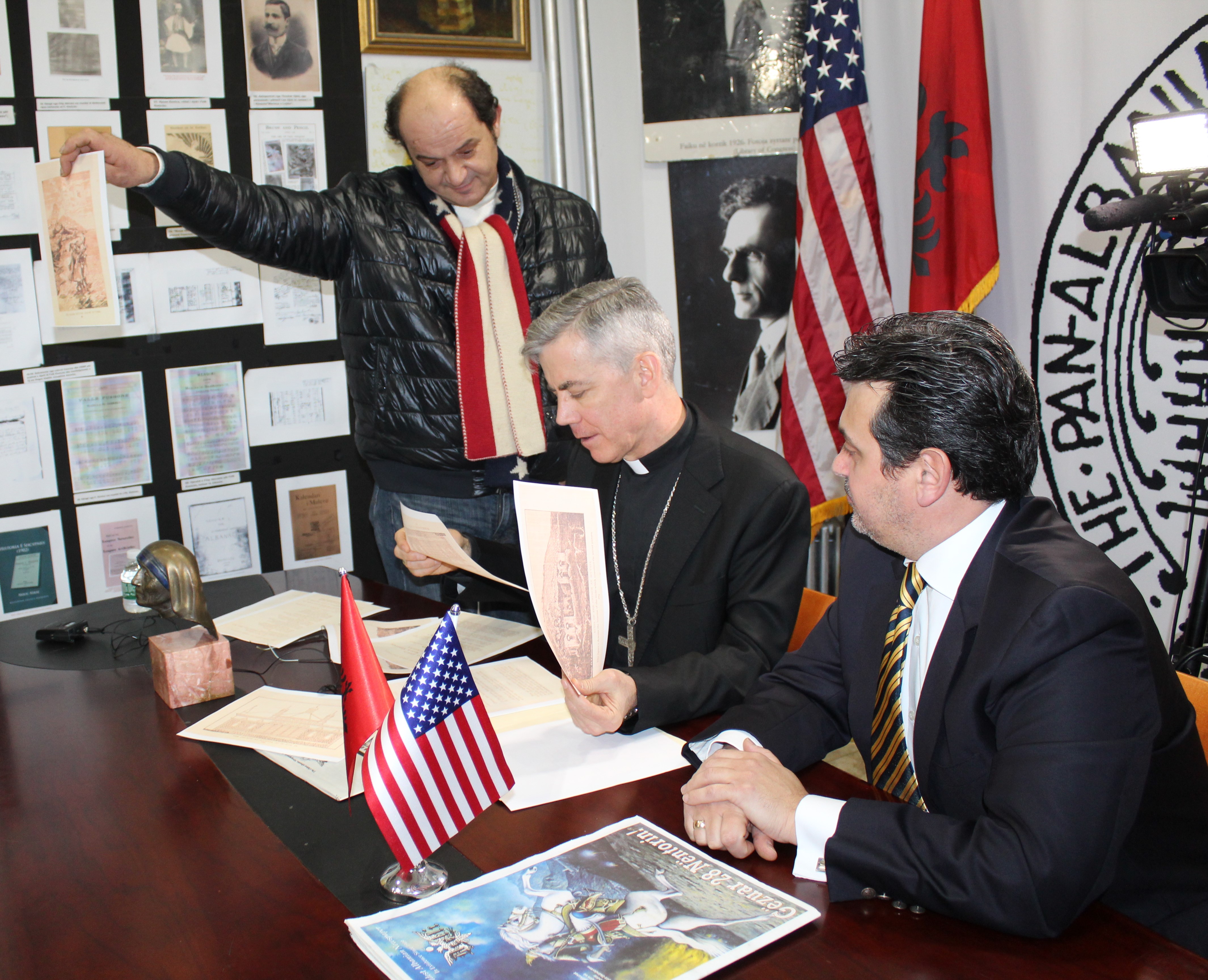
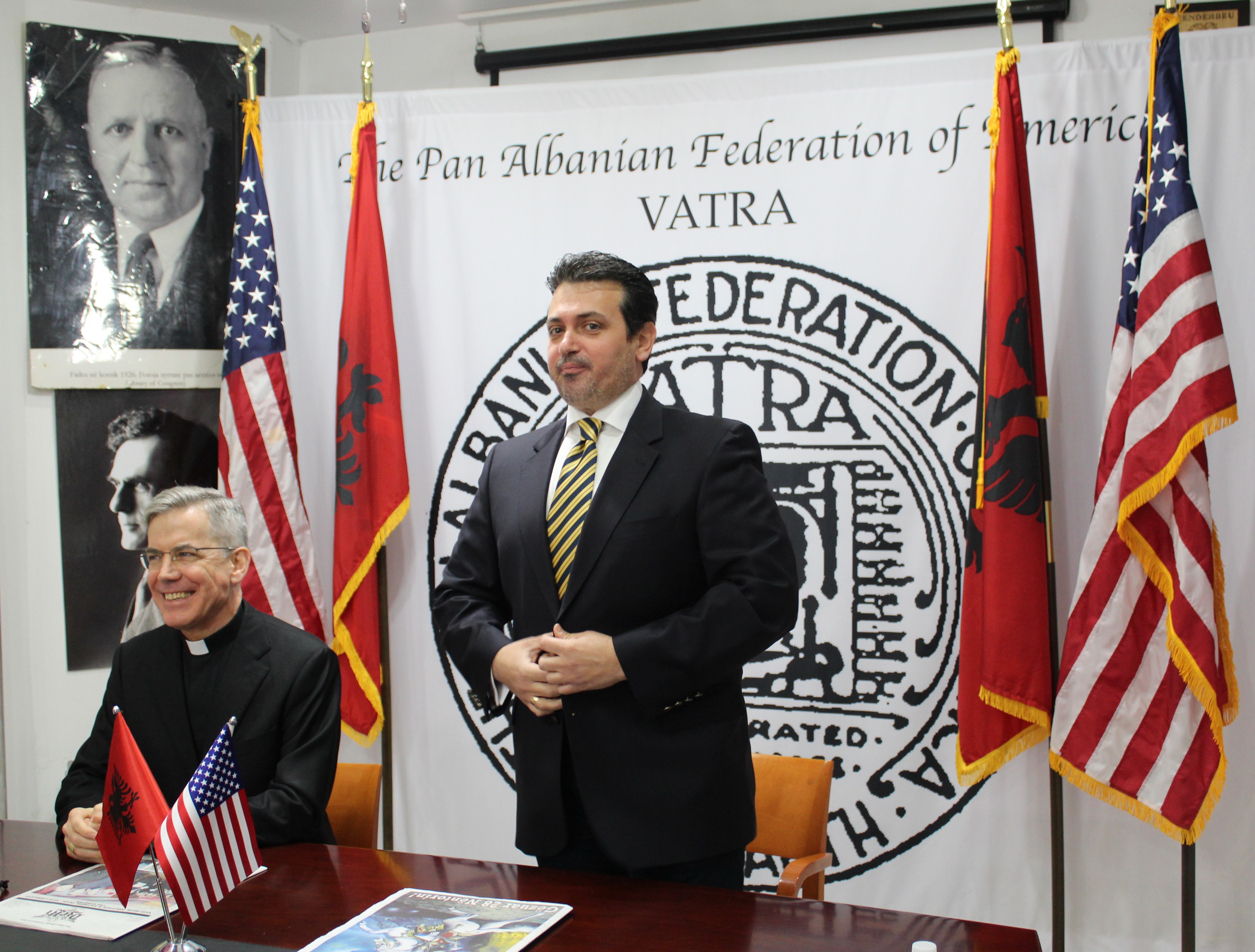
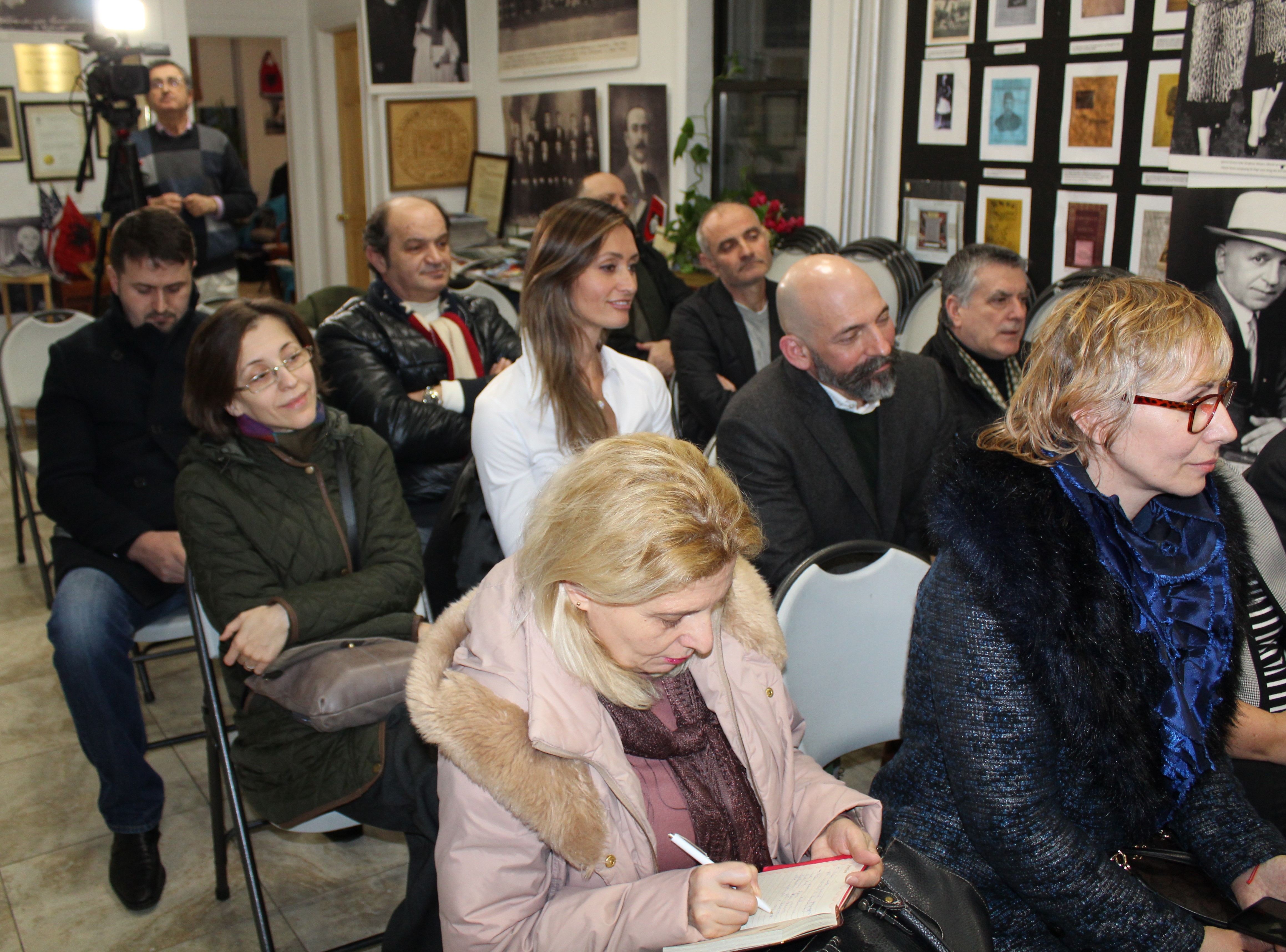
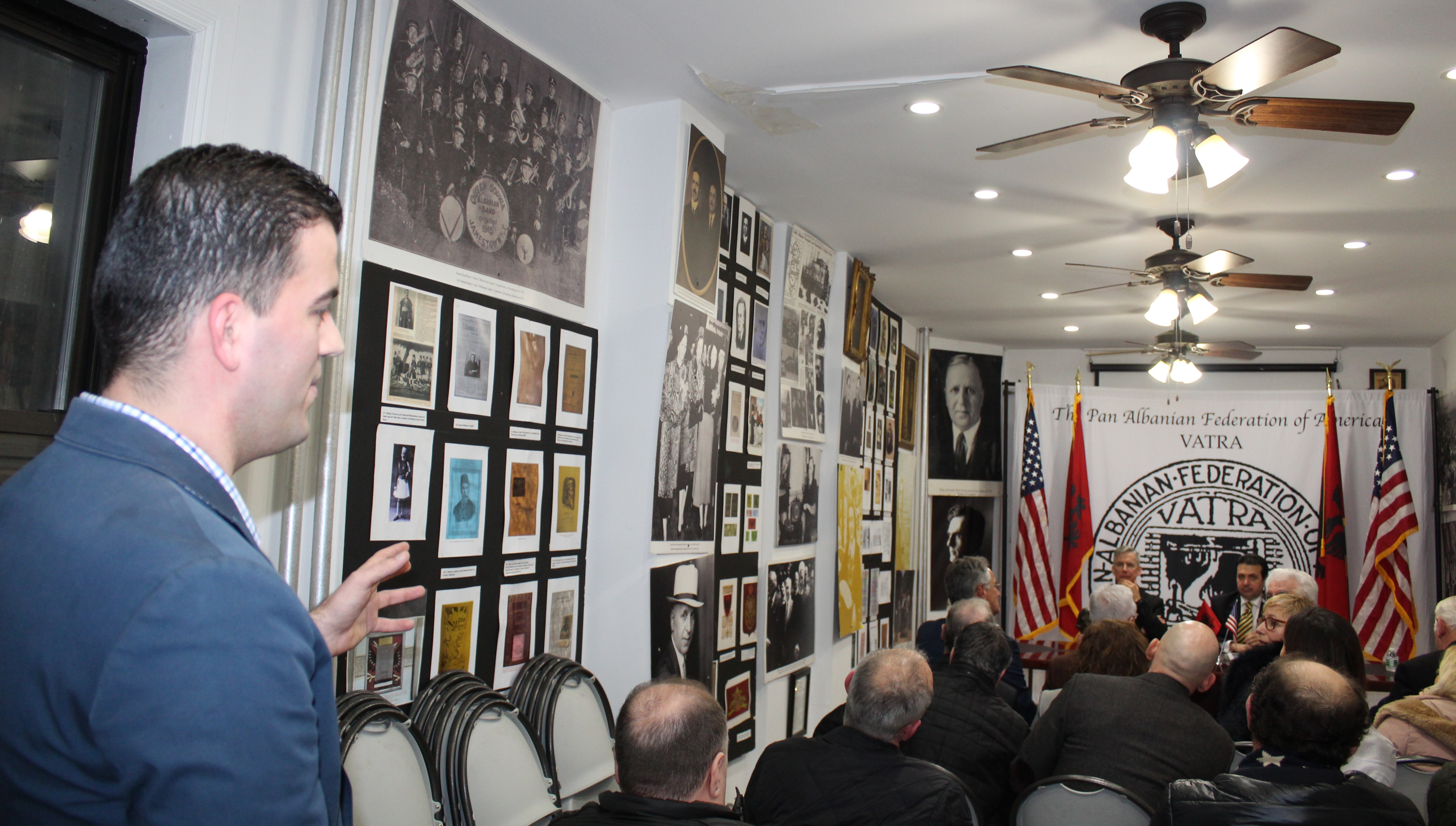
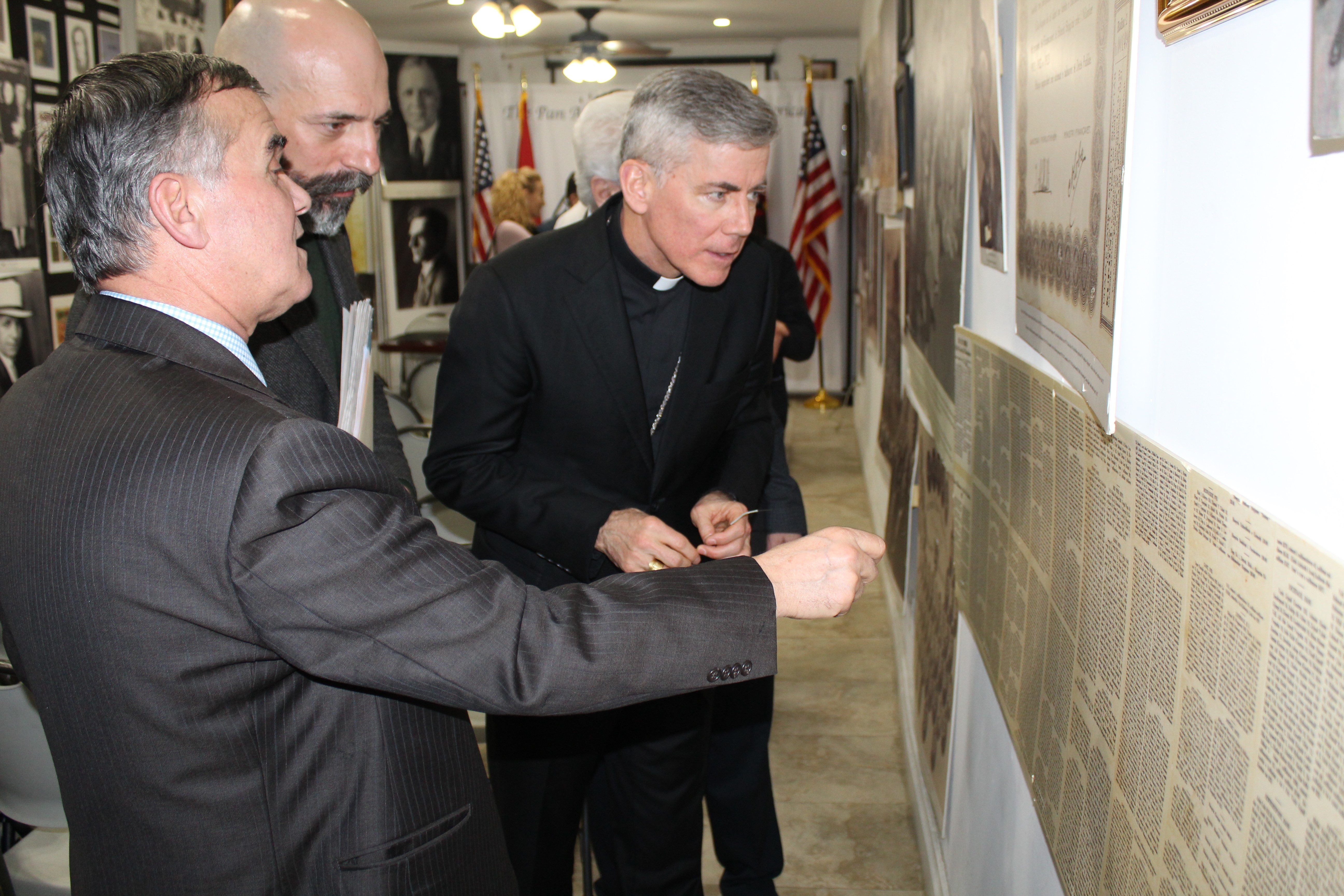
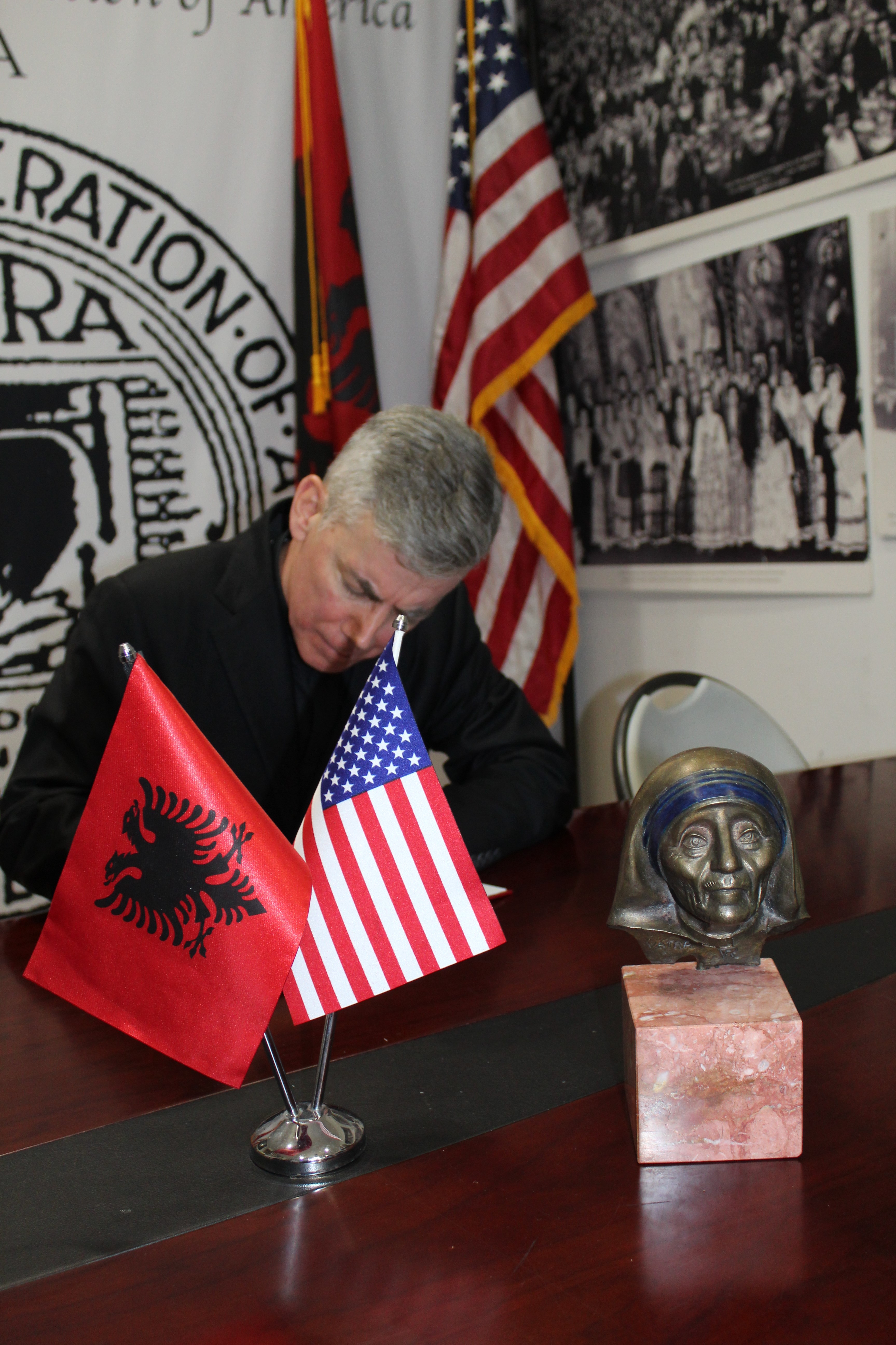

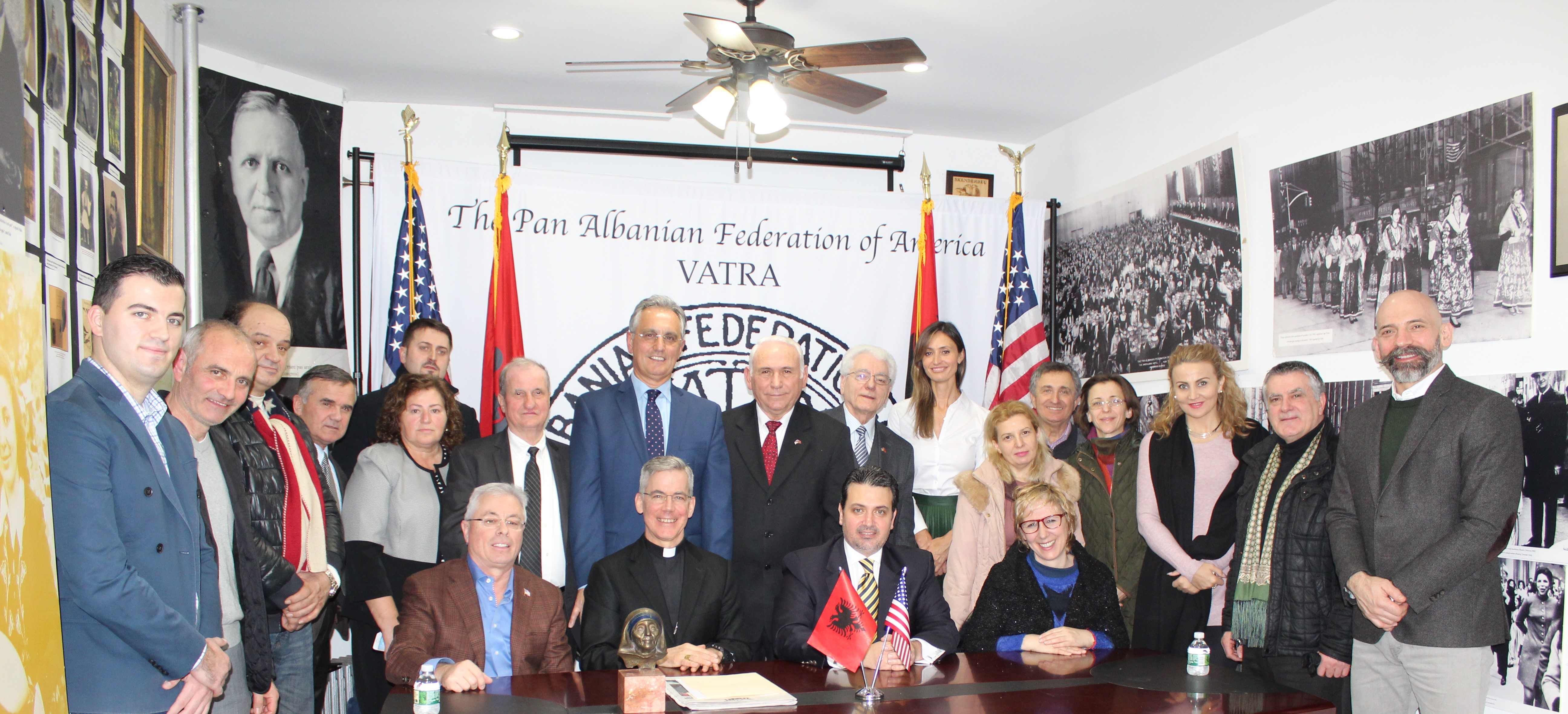
By Rafaela PRIFTI/
In his first visit at Vatra’s offices, the diplomatic representative of the Holy See to Albania, Archbishop Charles Brown was warmly received by several members of the Board and the Albanian-American community. On behalf of the Pan-Albanian Federation Vatra, President Dritan Mishto, expressed thanks for the efforts of the papal envoy to improve religious tolerance in Albania and pleaded with him to recognize Kosova’s independence. Archbishop Brown, who is a native New Yorker and served as a priest in a Bronx parish in the late 1980s, served a full term as the Vatican’s Ambassador in Ireland prior to accepting the assignment of Pope Francis to be the Nuncio in Albania in March 2017. During the 1990s he did a lot of work with the Missionary sisters and Mother Teresa personally, which he regards as a spiritual introduction to his current assignment. He spoke fondly about this year and a half in Albania, amidst efforts to know the people and learn the language. Indeed only a few weeks ago, the Archbishop celebrated Catholic mass in Albanian among the Albanian-American community in Washington DC. In his recent assignment, he said that the great discovery of “the preservation of some traditional values of family and respect in Albania that have really disappeared in many other places in the world” is worth-noting. He added that he was with Pope Francis before this last Christmas in Rome, and while talking about Albania, his Holiness reminded him that Albania was the first country in Europe that he visited and “he wanted that to be a sign.” Among the reasons for the Pope’s appreciation for Albania, the apostolic nuncio noted the religious harmony that exists in the country which can be a model for other places and the history of persecution of the faith. Religious believers of different faiths suffered under the time of communism. And that is a great testimony of the triumph of faith over communist materialism. “So for those two reasons, I think Pope Francis has a very special love for Albania and that love is certainly been communicated in a big way to me.” With regard to the issue of Kosova, the papal nuncio reiterated that in the last year or little more than a year, both the Prime Minister and the President of Kosova have visited with the Pope. This is an important issue that we take very, very seriously, he said and opened the floor to questions, most of which focused on Kosova. The successful developer with family origins from Peja, Harry Bajraktari raised the question of Kosova’s recognition by the Vatican and the establishing of diplomatic relations that positively encourage business and development in the country. Zef Balaj of Vatra’s Executive Board pressed for some guidance on the issue of supporting the acceptance of Kosova by the Holy See, which carries significant weight in the diplomatic community. In his response, Archbishop Brown expressed the desire of the Holy See to see a real resolution of the disputes between Serbia and Kosovo, as a condition towards moving forward with a number of issues including recognition. He admitted that at the present time, these are very difficult issues.
On the issue of inter-religious cooperation, the apostolic nuncio singled out the work of a committee of all heads of religious communities, which is very active and has issued joint letters on a number of issues. In the last year, the committee addressed various topics including European integration. When asked about his role, he answered that as the diplomatic link between the Holy See, the Vatican and the government of Albania, his task is to strengthen the relationship between the Vatican and the Catholic Church and the relationship between the Vatican and the government.
Responding to a question on the issue of properties confiscated by communism, he stated that it is a matter that affects the Catholic Church and other religious communities. On this sensitive topic, the Holy See supports and promotes the views of the Albanian Catholic Bishops. The church is not interested in displacing people to try to retain property. Aside from the restitution, there are problems of property title and ownership. The government is working on these complicated issues which are difficult to regulate, added the papal envoy.With regard to opportunities for the young people in Albania, Archbishop Brown said that they are immigrating and have a desire to emigrate in large numbers due to the economic situation. One of the elements certainly is corruption in various sectors of society that needs to be confronted and resolved. The reduction of corruption will produce a situation where there are more opportunities for young people. The government’s efforts to combat the problem of corruption are applauded and supported by the religious communities including the Catholic Church. He added that the European integration is linked to the question of corruption as the integration process moves forward that almost inevitably will require a reduction if not the elimination of corruption.
Bringing the attention back to Kosova, the community activist Harry Bajraktari provided more context to the issue of recognition by the Holy See. He stated that the Serbian Orthodox Church continues to undermine the country alongside the Serbian government supported by their historic allies. In Albania, the Orthodox Church under the influence of the Greek clergy plays a divisive role. Although Albanians are in a great place presently, the undermining efforts coming from various directions are intensifying. While commending the leadership of the Church, he noted that resolving the issue of recognition will help diffuse the rising tensions calling upon the Pope to move this matter forward.
Cezar Ndreu, Executive Council Member of Vatra, brought up to the Archbishop Brown a rare find: photocopied pages from a Benziger publication titled Our Lady of Good Counsel in Genazzano: A History of that Ancient Sanctuary and of the Wonderful Apparition and Miraculous Translation in 1467 of Our Lady’s Sacred Image, from Scutari to Genazzano
While looking at the pages carefully, the Vatican envoy commented with excitement about the history of the church. The selection from the 1888 publication was donated to the papal nuncio along with the November and December 2018 issues of the newspaper Dielli.